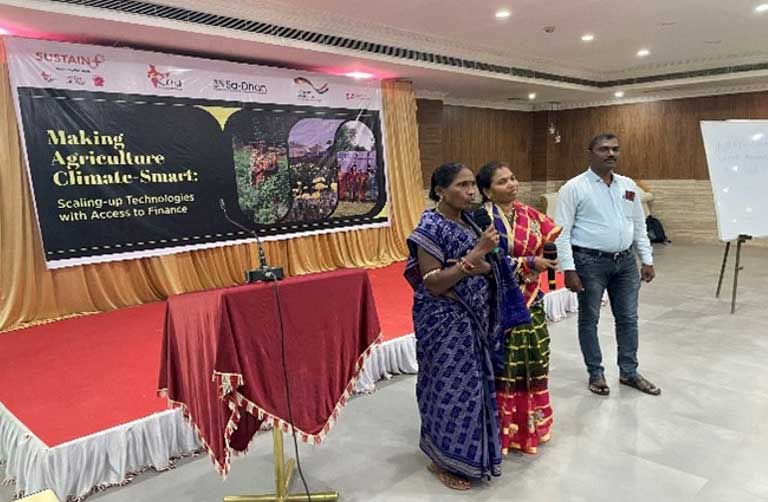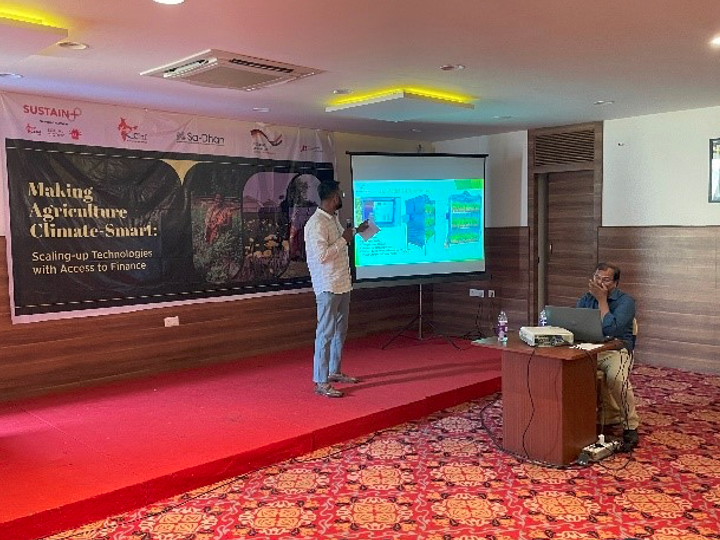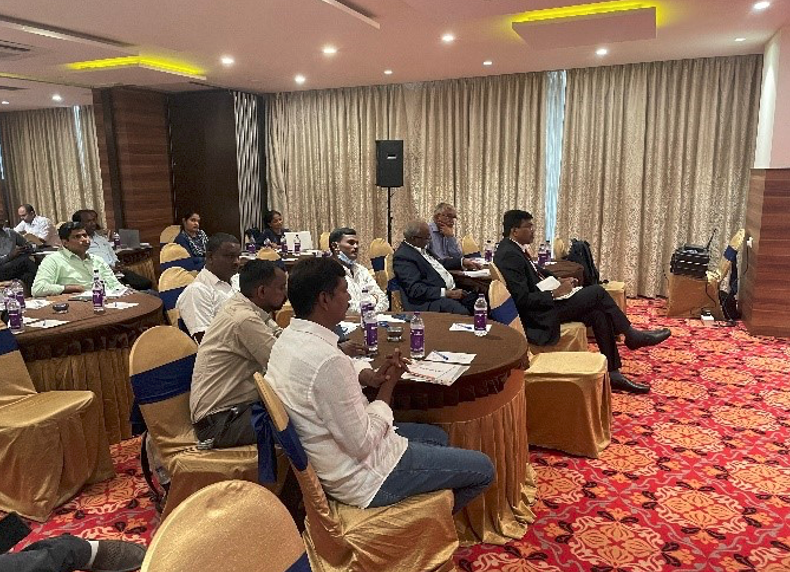Making Agriculture Climate Smart: Integrating finance with scaling-up climate-resilient technologies from small holder perspective in India

Under the Indo-German Cooperation CAFRI-NABARD project, GIZ India and Sa-Dhan Association (an association of Micro Finance Institutions (MFIs)) have joined hands with the core objective of getting the financial institutions build up financial models for scaling up proven technologies focusing on adaptation and climate resilience of agricultural systems. Financial services are already a key tool for enabling resilience, and MFIs are well-placed to promote climate change adaptation products and services, given the close mapping between the future incidence of climate impact and the microfinance sector footprint. The emphasis is on capacitating the MFIs and technology players during the program to then take the actions at scale. The initiative intends to reach large numbers of beneficiaries and farmers with the proven climate-resilient technologies in existing or new geographies.
The COVID-19 pandemic effects in India showed how MFIs can perform a key role in building resilience to severe shocks, where the MFIs partners ran over 30,000 vaccination camps, vaccinating over 3.8 million people. With this kind of outreach to communities and vulnerable groups at local level, MFIs can play a stronger role in promoting climate adaptation and resilience. With the adoption and continued use of new technologies by small-scale farmers, the initiative plans to engage with government institutions, local organisations and other ecosystem players creating an enabling environment to understand and address the intervention context. The project’s scaling activities are guided by ‘private finance’ driven agenda which ensures that relevant key public and private sector actors come together to facilitate the uptake of proven climate-resilient solutions. Thus, supporting business champions to scale their innovations for sustainable development.
Strength in cooperation
In the current landscape considerable focus has been placed towards developing technologies and services to support small and marginal farmers which not only enhances livelihoods but mitigates the risks of climate change. The Sustain Plus Energy Foundation (SPEF) program in India set up by Collectives for Integrated Livelihood Initiatives (CInI), Social Alpha and SELCO Foundation, has been focusing on scaling proven technologies for meeting the aspirations of small holders with the overall agriculture and allied livelihoods value through an ecosystem approach. Sustain Plus, over the last five years have popularized via extended period field trail, technologies that provide climate-resilient solutions in tribal belts of many states including Gujarat, Odisha, Jharkhand and Karnataka. Sustain Plus, with the help of various interventions has been able to create an ecosystem of local institutions and community members, wherein many marginal farmers have increased their income multiple times sustainably. Sustain Plus has also converged with government schemes and other philanthropic sources to leverage grants for providing access to solutions to farmers, reducing the burden of initial cost on farmers/communities.
Affordable and timely availability of finance is one critical enabler which will make these products available on scale to small holders. These products and technologies have a good opportunity to fall within the purview of Micro Finance Institutions (MFIs) and small finance banks for financing the working models which deliver economic returns and impact livelihoods of communities. To proactively connect and engage the three important stakeholders, namely community institutions, technology players and financial institutions on one common ground, GIZ India facilitated a collaboration among Sa-Dhan and Sustain Plus with the focus on supporting and bringing in financial institutions to meet aspirations of small and marginal farmers. Sustain Plus, as a support agency is identifying and engaging with technology providers having viable and proven solutions which improve climate resilience of vulnerable groups. As an implementation partner, Sa-Dhan would mobilize financial institutions to dialogue, discuss and work out plans for bringing in the financial linkages for the climate-resilient technologies to be taken by the farmers on ground.

Facilitating dialogue with financial institutions: First step towards scale-up
Towards promoting awareness and eagerness within the financial institutions to support the technology deployment, a series of sensitization events in New Delhi, Ahmedabad, Bangalore, and Bhubaneswar were organised. The events saw participation of more than 200+ participants from technology players, start-ups (whose products have demonstrated field success), MFIs and community members. The users of these proven climate-resilient technology solutions have experienced the economic value with increase in income and they are now willing to pay for these solutions and thus look at options of taking loans to finance the same.
Some solutions discussed in the workshops are bio-digestors converting animal waste to cooking gas, organic fertilisers; solar powered pumps combined with drip and mulch provide ways to sustainably irrigate fields; decentralised solar-powered hydroponics cattle nutrient producer providing nutrient rich green fodder at farmers’ farm (reducing travel and labour cost for fodder). Other products discussed included nurseries protected by polyhouses, solar power lighting for poultries (enabling enhanced feed of poultry and thus better diversification of income) and a portable solar power-driven pump which can be set up in isolated places, making these isolated places cultivable without any need for fossil fuels (which involves logistical issues besides being volatile in terms of prices). In all the events, an inclusive business case for few solutions were evident to the MFIs and an initial interest from MFIs for investing in few of these climate-resilient solutions has been expressed. “Earlier I used two gas cylinders costing 2200 INR per month for a family of 8 and now with bio-gas for cooking, I’m able to incur savings of approx. 6000 INR in last six months” said a user of bio-digestors.
Way forward
During the event, as users of the product vouched for the economic value, many FIs have shown interest in financing the products. Social media posts have evinced interest from impact funds, and philanthropic organisations who might incentivize financing of these products by rolling out a line of credit. Thus, after the event there has been interactions between the technology players and the MFIs, and product demos are being organised at various places where MFIs can finance the products. MFIs have keenly followed up for the same. Thus, there is evidence that the link up is working. GIZ-Sustain Plus-Sa-Dhan partnership’s vision is to ensure the communities get access to quality climate-resilient technologies that increase their productive capacity and income; the technology players and service providers improve their business performance by engaging with more clients and the financial inclusion partners get business opportunities to scale-up. With the proof through initial pilots at various locations in the states of Gujarat, Jharkhand, Odisha and Karnataka in India; the technology players and MFI are working closely on rolling out the go to market strategy along with the community institutions of the smallholders. This should lead to scaling-up of technologies and increase in area under climate-resilient agriculture practices.

Link to further materials
Contact person
Anindya Das — Junior Climate Change Advisor
Climate Adaptation and Finance in Rural India (CAFRI NABARD)
Key buzzwords
Climate Adaptation, Climate Resilient Agriculture, Adaptation Finance, Climate-Smart Technologies, Cost effective End-user financing

